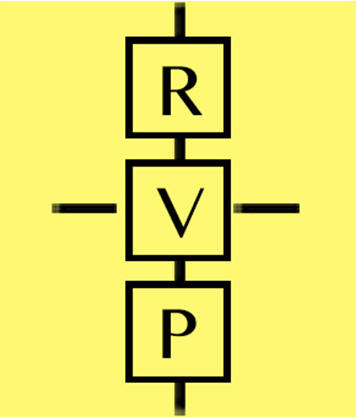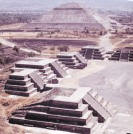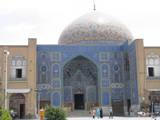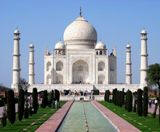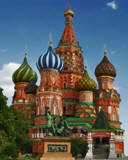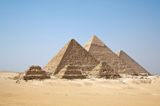|
|
AN INVITATION
THE ANNUAL SEMINAR
Religion: Key to
Understanding Violence and Promoting Peace in Global
Times
August
18-September 19,
2014
Washington, D.C.
Seminar
Structure
Theme
It is both the glory and the
conundrum of persons that they can achieve their proper
fullness only by transcending or going beyond their
humanity. They are destined to a life they can neither
fully comprehend or precisely control. The result is a
need for philosophy, notably metaphysics, in order to
help guide one's steps.
On the one hand, it is necessary
to avoid the idolatry of an egoism that absolutizes
oneself and instrumentalizes the other to the
destruction of both. On the other hand, one is drawn
ever forward and upward to realize the human potential
of a spirit incarnate in matter, yet which knows no
bounds.
The key to both is the
transcendence unique to humans which both constitutes
and challenges their glory. Poorly conceived this can
base attacks on others and religious wars. Yet correctly
applied it constitutes the call for self-sacrifice for
others and the appeal of peace.
Two currents are especially relevant here. One relates
to the Nazi experience and the holocaust. After World
War II this generated a focused attack, especially among
French philosophers, against any sense of 'absolute' and
hence of 'transcendence'. This reduced all to the
relative, the reductively human and the secular. This is
an essential ingredient of the post moderns and of
contemporary philosophy.
The other current is the
spectacle of the contemporary turmoil across the various
regions of the globe. This tends to reinforce the first
current leading to the sense that any sense of
transcendence is destructive of life in these times.
Here one is led to the central issue of culture and its
phases: a sense of transcendence was needed in an
earliest rural phase of life; it was supplanted by the
rule of law immanent to human society in its modern
urban configuration. What then of the present situation
where the media so individualizes the context of meaning
that it supplants the social forces of religious
institutions on the religious/transcendent level, as
well as of social structures such as labor unions and
political parties on the properly human level.
An implication of this for the
seminar theme is that the Middle East chaos where a
vivid sense of transcendence meets the influences of
modern times is not essentially different from the
problems experienced in the West, e.g.,
(1) the seekers who are leaving
old institutions in search of new ways of living more
meaningful and fulfilling lives;
(2) the institutional sources
such as universities, academies and religious
communities generally called upon to guide and inspire
this effort;
(3) the ethics for responding to
the challenges of life; and
(4) the inter-relation of the
plural form of spirituality which have become newly
possible across the world in these global times.
Each of these issues can be
treated in their specifics by the separate sciences
appropriate to their particular order. Yet the way they
all share parallel disfunction at relatively the same
time suggests the need for developing new philosophical
insight in order to protect and promote the underlying
reality of transcendence and of the absolute without
which none of these particular issues and fields can be
adequately understood and lived.
This is the basic insight of
Piaget in psychology, of Heidegger in metaphysics and of
Gadamer in hermeneutics, namely, that the earliest
insights are the most basic and most rich and that they
are not substituted by later insights but remain as the
essential substrata of all that follows. Thereby they
serve as the continual corrective of the human
tendencies to simplify and universalize which leads to
the extremism of ideologies.
Hence, the issue of
transcendence for global times and as related to the
varying phenomena and degrees of violence. There include
the killing in the tribal and post tribal societies of
the Middle East, the marginalization and prejudice with
regard to the underclass in modern urban societies, and
the extremism and resulting paralysis and
disorganization of the public institutions of today's
media society.
Whether religion is essentially
the cause of peace and/or of violence is the main burden
of this seminar. Through human history religion has
been the essential key to the salvation of humanity, yet
if poorly done or not attended to in a secular age leads
to human stagnation and indeed to violence.
Application for Participation
Applications for
participation in this seminar should be sent by email by
March 1, 2014, to cua-rvp@cua.edu.
Participants cover their own travel costs; the RVP
provides simple room and board during the seminar. The
seminar will be held at the RVP Seminar Room: Gibbons
Hall B-12, 620 Michigan Avenue, North East, Washington,
D.C., 20064.
Please enclose:
(1) a vita
describing one's education, professional positions and
activities;
(2) a list of
the applicants' publications;
(3) a letter
stating your interest and involvement in this theme and
its relation to your past and future work in philosophy
and related studies; and
(4) an abstract
of a study(s) you might present as an integral part of
the seminar.
|
(all
the materials on this website are copyrighted © by
the council for research in values and philosophy)
|

